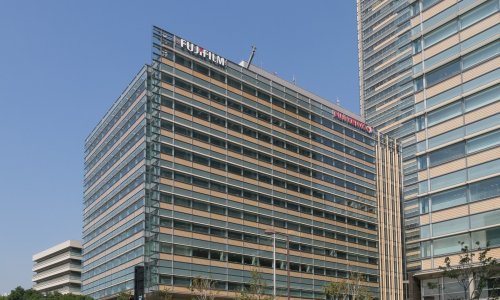The economics of laboratory medicine
Over the past decade, laboratory medicine developed rapid, accurate tests that help in diagnoses, prognoses, treatments – and the overall theragnostics; but is it economical? This November, at the Journées Internationales de Biologie (JIB) meeting in Paris, that question will shape the medical economics session Medical biology: a key factor in the healthcare effectiveness, organised by the in vitro diagnostics industry union SIDIV.

When our European Hospital team asked session moderator Francis Megerlin and colleague Professor François Lhoste about medical biology’s importance in France, they explained that this field is undergoing change. The medical element of biology has been the subject of two reforms, one in 2010 another in 2013, both covering not only the new role of the biologists and mandatory accreditation of laboratories performing medical analyses, but also a technical, capitalistic and geographic reorganisation of the sector. The French model is still very different from, for example, the German model, which is very concentrated with high productivity reducing analysis costs and with strong repercussion on the final price.
‘In France the structure is still based on an older model, with high prices and an organisation of many small labs dispersed over the territory. Therefore, there are significant pockets of productivity and cost-effectiveness.
‘The reform, however, equates to a deep change in the business model. The traditional monopolistic stakeholders are reticent, for the most part, mainly due to the possible impact on their career path and the current value of their business. Hence, France is adapting its eco-system very gradually, although this may accelerate due to huge financial constraints on the way, as in many other European countries.’
Is our growing dependence on testing worrying? Could tests delay or complicate treatment?
‘Technological progress enables growing quantitative and qualitative advantages with new applications (diagnoses, monitoring and observed efficacy). It also allows huge price reductions thanks to a productivity that, up to now, was not widely known despite its great interest for payers. Nevertheless, the amount of information now reliably produced must be interpreted, either by a person or computerised, due to the complexity of the data mass accumulated.
‘In this context, the “medicalisation of biology” directs the change in the biologist’s work; they must help in the choice of relevant analysis and interpretation of results, in a workable timeframe according to both clinical necessity and the patient’s interest. The biologist who manages these data acquires a major role in the quality of the proceedings.
‘Under these conditions, biology validates its decisive contribution to the cost-effectiveness of healthcare systems at local and national scale. Also, rapid tests that guide diagnosis, monitoring and follow-up of patients, are in full development. These potentially open the way to considerably faster and better care for patients; sometimes self-administered at a distance, with less risk and lower cost (tests by doctors, pharmacists, nurses, patient at home connected via smart devices, etc.). Other countries have already developed and adapted the routine use of microchips, which is rapidly taking off in Asia.’
Calculating the economic value of a biological test is also a topic to be covered during the JIB presentation. Talk about the economic value of a product or service generally aims to discuss price, they point out, quoting Price is what you pay; value is what you get (W. Buffet).
‘Price must cover research and production costs (now essentially social), allow investment and generate revenue for the investor. Against this background the question of value is raised at different levels of use and/or purchasing – hospitals, healthcare organisations, biologists, other users (patients, or not), health insurers, pharmaceutical industry, etc.). When the bulk of healthcare is paid for by public or social funds, the value of a solution is sometimes viewed differently, depending on the social, organisational, economic, and of course, political background. All arguments (scientific or not) are good to determine value. However, ultimately this depends on a commercial contract i.e. social.’
Are newer, cost-effective and more accurate tests needed – albeit even if more expensive?
The end users test performance and know best. ‘Their criteria are multiple and constantly changing; specificity, sensitivity, speed, ease-of-use, connectivity, cost, etc.). The best test is not necessarily the most expensive. A worthwhile innovation could be rewarded by market share, increase in volume of new activities, or a transformation in healthcare organisation. In all domains, technological progress leads to costs and prices reduction. Look at the smartphones! It is done to increase accessibility to powerful solutions. Almost everywhere the healthcare delivery chain is being reorganised under economic and demographic constraints. Technological progress and cost-effectiveness are a condition - and an opportunity - to maintain access to high quality care for all. That is also good for new businesses. The diagnostic industry has its future in front of it.
‘However, the old fragmented and inflationist practices are not sustainable economically; sharing the progress is vital.’
What type of medical test would make the biggest difference?
‘Tests have three main applications of interest to medicine; diagnosis, follow-up and observation of treatment/even cure. Some tests are individual markers of medico-economic efficacy in the case of expensive treatments e.g. oncology, immunology etc.). Therefore, they may become contracted Key Performance Indicators for highly specific medicines to obtain market access. In addition, there are in some countries, official lists of tests deemed “emergency”, which can rapidly assess critical conditions. There are tests under development for hospital emergencies in neurology, cardiology etc. and also tests for use outside the hospital, as mentioned. These contribute to research of quality, safety, fluidity and cost-effectiveness of the healthcare journey. Their reach covers prevention just to the alteration of treatment dose by the patient himself, possibly connected with IT in the home and other new solutions. The field is enormous. JIB will be exciting!
Profile:
Francis Megerlin PhD (International and Comparative Law), HDR (Pharmaceutical Sciences) is MCU at Paris-Descartes University, ESSEC Business School and Sciences Pro Paris, France. He is a Senior Fellow at the Berkeley Center for Health technology, UC Berkeley, California, and a member of the GRADES, University of Paris Sud.
François Lhoste MD is professor in clinical pharmacology and pharmaco-economics at Paris-Descartes University. He is also founder and co-chair of the Executive Master Strategy and Management of Health Industries at the ESSEC Business School, and past-president of the French Society for Health Economics. Researchers in biotechnology, drugs, medical devices, insurance and payment methods in both ambulatory care management and the hospital sectors, their French School is centred on the systemic assessment of innovative technologies, new performance-based pricing methods and more global market access in a constrained environment. They declare no conflicts or competing interests related to this interview.
05.11.2013





